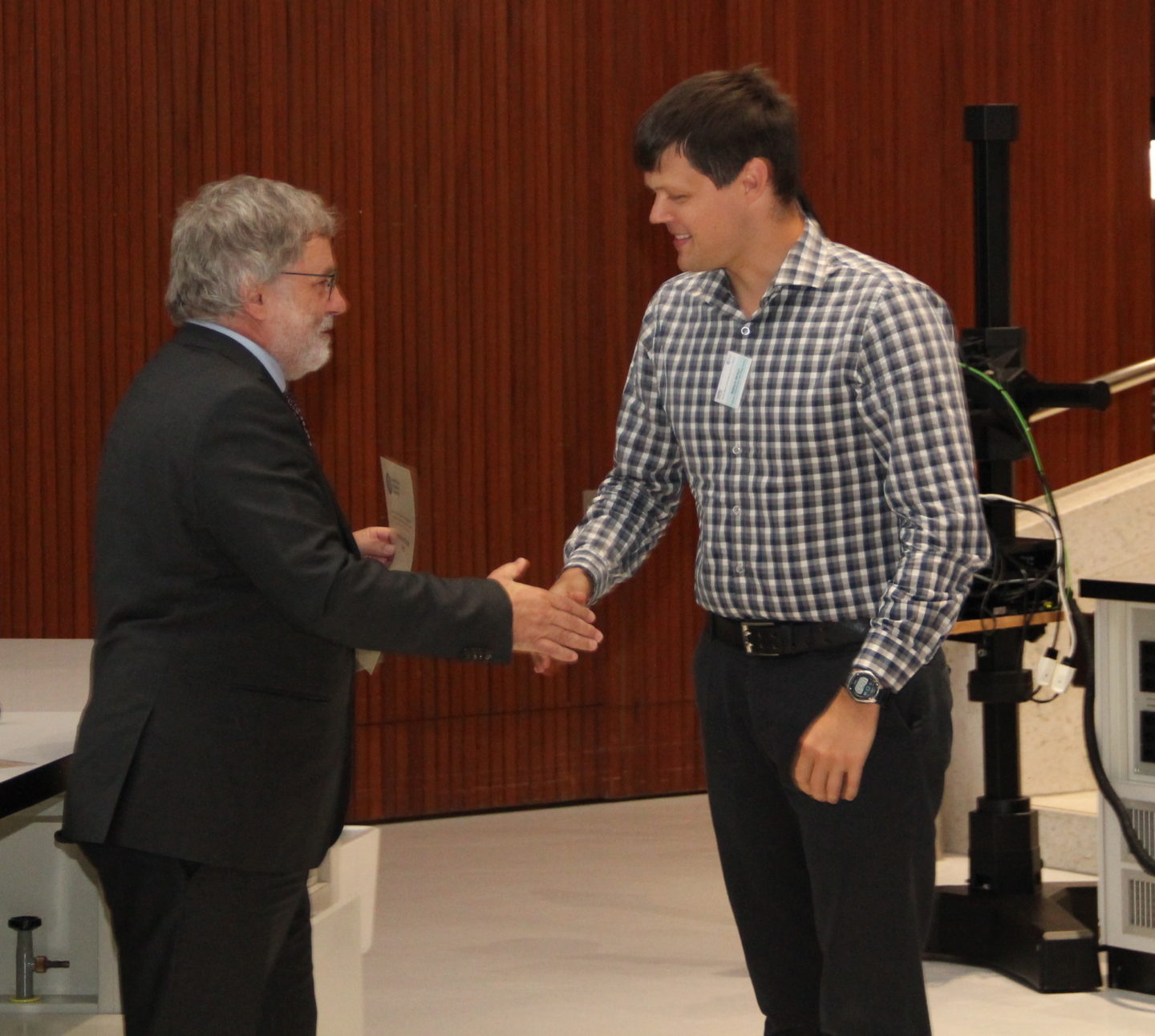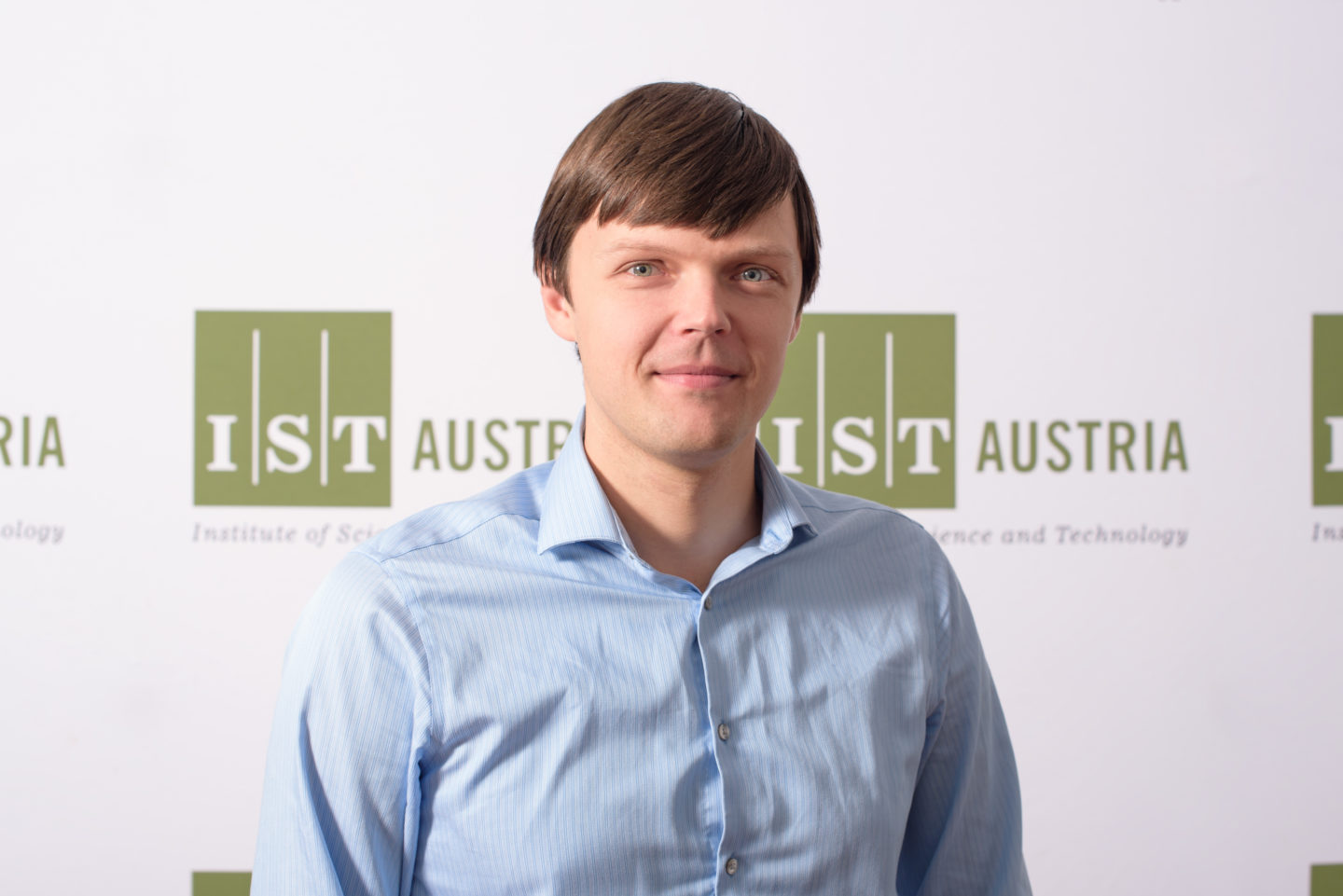August 29, 2019
IST Austria Professor Maksym Serbyn wins Ludwig Boltzmann Prize
The Austrian Physical Society has awarded its Ludwig Boltzmann Prize to theoretical physicist Maksym Serbyn for his pioneering work on the non-equilibrium properties of quantum systems.

The Austrian Physical Society has awarded its Ludwig Boltzmann Prize to theoretical physicist Maksym Serbyn for his pioneering work on the non-equilibrium properties of quantum systems.
Established in 1953, the Ludwig-Boltzmann Prize is awarded once every two years to honor outstanding results achieved by a young researcher in theoretical physics. This year’s sole winner is Maksym Serbyn, who is based at the Institute of Science and Technology Austria (IST Austria) in Klosterneuburg. He has been awarded the prize “for his contribution to a theory of thermalization and localization of quantum many-body systems.” The prize was awarded to him on August 28, 2019, at the joint annual meeting of the Swiss and Austrian Physical Societies in Zurich.
Whilst in a relatively ‘high energy’ state, some closed quantum systems can see a breakdown in the laws of thermodynamics. This allows quantum systems to retain the infinite-time memory of its initial state and also opens the door to phenomena that are otherwise only possible at extremely low or absolute zero temperatures (i.e. 0 Kelvin or -273.15 °C). Improving our understanding as to why this occurs not only has ramifications for quantum physics but also could help the advancement of applications such as quantum computing — through improving the underlying fundamental science behind these innovations.
Since 2017, Professor Serbyn has led a research group at IST Austria with a primary focus in understanding the mechanisms of thermalization breakdown in quantum systems that are prepared in a non-equilibrium state and isolated from the environment.
“I am both honored and humbled to be recognized by the Austrian Physical Society” says Serbyn, “I would also like to thank my fellow collaborators without whom this would not have been possible. Finally, this work was only achievable because of IST Austria’s support of fundamental curiosity-driven research.”
After receiving his doctorate at the Massachusetts Institute of Technology (MIT), Maksym Serbyn continued his research as a ‘Gordon and Betty Moore postdoctoral fellow’ at the University of California, Berkeley. There, he laid the foundation for his current work before joining IST Austria in 2017. Serbyn’s research has collected over 2000 citations over a period of less than five years with some of his seminal works being confirmed by state-of-the-art experiments which involved ultra-cold atomic gases.

IST Austria
The Institute of Science and Technology (IST Austria) is a PhD-granting research institution located in Klosterneuburg, 18 km from the center of Vienna, Austria. Inaugurated in 2009, the Institute is dedicated to basic research in the natural and mathematical sciences. IST Austria employs professors on a tenure-track system, postdoctoral fellows, and doctoral students. While dedicated to the principle of curiosity-driven research, the institute owns the rights to all scientific discoveries and is committed to promoting their use. The graduate school of IST Austria offers fully-funded PhD positions to highly qualified candidates with a bachelor’s or master’s degree in biology, neuroscience, mathematics, computer science, physics, chemistry, and related areas. www.ist.ac.at



